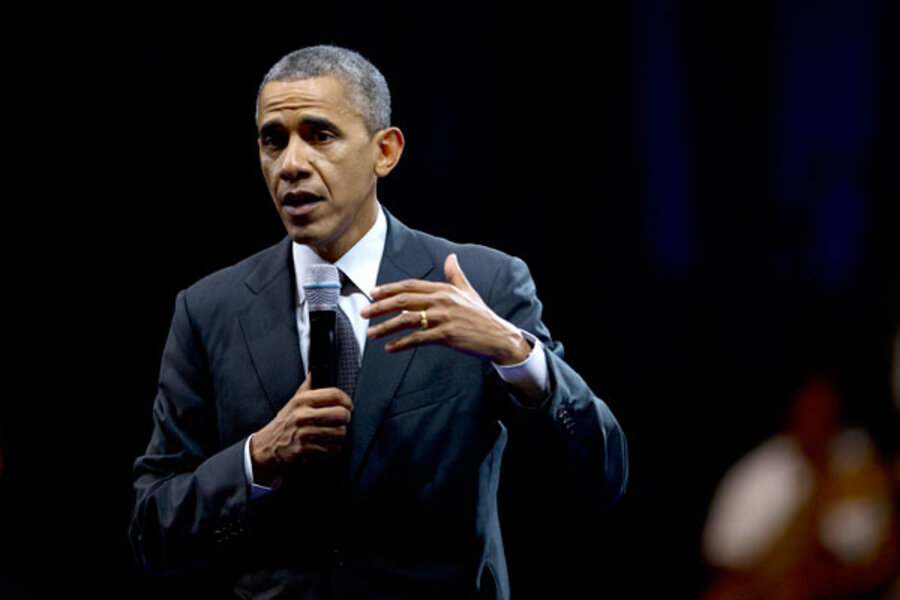No, the presidency has NOT become more difficult
Loading...
The Washington Post’s Chris Cillizza wrote an interesting column two days ago under the headline “It’s Virtually Impossible to be a Successful Modern President.” Cillizza begins his piece like this: “Being president is the most powerful job in the world. At which you will almost certainly fail.”
Both those statements are wrong, of course. As I and other presidency scholars have written repeatedly, the presidency is not a very powerful office and it is certainly not the most powerful job in the world. Indeed, even among elected chief executives in modern democracies, the presidency is one of the weaker offices. The primary reason, of course, is because the Framers wanted it that way, as indicated by their decision to embed the presidency within a constitutional system of shared powers. That’s why presidents cannot dismiss Congress, call for new elections, or even count on the support of a legislative majority to pass legislation – all expectations that many prime ministers in other nations possess. And, with the ratification of the 22nd amendment, presidents lucky enough to win reelection serve most of their second term as de facto lame ducks. As Brendan Nyhan notes in his column today, however, this weakness has not stopped individuals from exaggerating the president’s potential degree of control over events.
But what of Cillizza’s second claim? In part, both Cillizza and Ronald Brownstein, whose article here provides some of the evidence on which Cillizza bases his claim, rest much of their case about presidential weakness on the belief that America is an increasingly divided nation. As I’ve argued elsewhere, however, the evidence that Americans are polarizing along ideological lines is weak – most of what analysts claim to be a growing ideological divide is more accurately described as party sorting. In short, there’s not much support for the claim that modern presidents are dealing with a more ideologically polarized public.
The more empirically valid charge is that modern presidents must deal with a very polarized Congress – the most partisan polarized Congress since the 19th century. Both Cillizza and Brownstein argue that it is very difficult for presidents to get legislation passed through a Congress that is so deeply polarized along partisan lines. But the link between partisan polarization and legislative productivity is more complex than this simple narrative would have one believe. Nelson Polsby, in his classic work "How Congress Evolves," describes how a cross-partisan conservative coalition of southern Democrats and Republicans stymied the passage of liberal legislation from 1937 until the mid-1960s. More generally, building on Polsby’s observation, studies show that too little polarization in Congress is as counterproductive to legislative productivity as is too much. This is because under conditions of limited partisan polarization, we often see great divisions within parties (see Polsby’s description of the Democrats during the era of the conservative coalition), and little difference across them – exactly the conditions that James MacGregor Burns complained about in his classic study of American political gridlock in the early 1960s. Evidence shows that legislative productivity under these conditions of weak polarization is as limited as under the deep polarization in Congress presidents confront today.
Moreover, there is other evidence one can cite that undercuts the premise of Cillizza’s and Brownstein’s argument. For instance, we might think that if the presidency was so much more difficult, presidents would find it harder to win reelection. However, our three most recent presidents – Clinton, G. W. Bush and Obama – all successfully won reelection. In contrast, three of their four immediate predecessors: Gerald Ford, Jimmy Carter and G. H. W. Bush, did not. Moreover, Lyndon Johnson did not pursue a second full term in 1968 because of political opposition and declining support, and Richard Nixon resigned in the face of almost certain impeachment, making Ronald Reagan the only one of those six previous presidents to serve two full terms. No wonder scholars complained of a “tethered” presidency at the start of Reagan’s first term!
Finally, consider the severity of the issues facing recent presidents. Yes, 9/11 ushered in the Age of Terrorism, and all the difficulty that entails for presidents’ efforts to fulfill their commander-in-chief functions. But the consequences of making a mistake in the fight against terrorism, while enormous, are arguably not any greater – and probably less significant – than what the post-World War II presidents confronted during the height of the Cold War. It is for this reason that Richard Neustadt, in the final edition of his classic work which was issued as the Cold War came to a close, cautions against looking back on those years with rose-colored glasses. He writes, “From the multicentered, interdependent world now coming into being, environmentally endangered as it is, Presidents [and pundits!] may look back on the Cold War as an era of stability, authority and glamour. They may yearn for the simplicity they see in retrospect, and also for the solace. Too bad.” Although acknowledging that governing in this new age has its own set of difficulties, Neustadt reminds us that there are compensations for outliving the Cold War: “[T]he personal responsibility attached to nuclear weapons should become less burdensome for Presidents themselves, while contemplation of their mere humanity becomes less haunting for the rest of us. To me that seems a fair exchange.”
To me too. Yes, the presidency is difficult. But there’s little evidence that it is harder today than in previous presidencies during the post-World War II modern era. Indeed, one might argue that the job has become slightly easier, although I doubt that is any solace to Barack Obama.
UPDATE: Jonathan Bernstein weighs in on the issue here: http://bv.ms/1xbKij5
Matthew Dickinson publishes his Presidential Power blog at http://sites.middlebury.edu/presidentialpower/.







